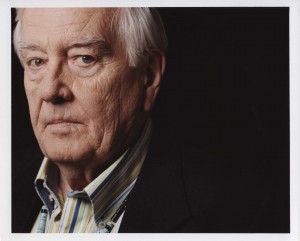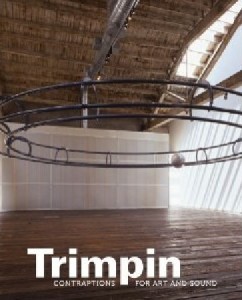[UPDATE BELOW] On October 12 the Third Annual Conference on Minimalist Music will open at the University of Leuven, Belgium, with my keynote address, “The Boredom of Eventfulness.” (Louis Andriessen will present the other keynote address on the 14th.)
One of the urgent topics during the conference, among us Society for Minimalist Music members, will be the proposed location for the Fourth Annual Conference, to take place in 2013. We agreed from the beginning to alternate conferences between Europe and America, but finding an American host institution has not been easy. To answer the obvious question first, Bard College where I teach is not an option. Bard is a rural college three miles away from a few small towns whose hotels fill up quickly. Transportation and housing for a sizable conference with high-profile evening performances would be logistical nightmares here. On top of that I haven’t a single ally here who gives a damn about minimalism, and no grad students. Funding is nonexistent and in competition with well-established music programs run by others. I would encounter resistance and skepticism at every step, while trying to solve insurmountable difficulties by myself. I can’t turn a conference here into a comfortable situation for the attendees.
Some of these problems are endemic to this field. Most of us American academics in the SfMM find ourselves the token minimalism-lovers in our departments. A few have said that their musicology departments might be interested; almost everyone says that the composers in their departments would be unalterably opposed. The academic composition community still sees this 50-year-old movement as a threat and an embarrassment. UMKC, where the second conference was held, was a unique situation, with several passionate/young and sympathetic/old professors, eager and talented grad students, and an unbelievably supportive and knowledgeable Dean of the School of Music, plus a comfortable urban environment in which zipping among restaurants, hotels, and the university was fairly easy. Duplicating all that elsewhere is a daunting prospect. Naturally, it would be optimum for organizational continuity to use a school where one of our SfMM members is on faculty, but this is proving difficult. The University of Washington and Indiana University have both been strongly considered, but with reservations from the relevant faculty. I’m wondering if there’s some scholar out there who would love to be involved, or some department where minimalism is taken seriously, but whose faculty haven’t become involved with the conference yet.
I must say, the first two conferences have been among the most exciting experiences of my life, and I wouldn’t say anything remotely similar about any other conference I’ve ever attended. The scholarship is exciting and new, developing rapidly. Major composers and performers are easily available as star guests. The music has been fantastic – hearing Charlemagne Palestine live at UMKC changed a lot of lives. This is a tremendously energetic venture surging in an era of economic uncertainty against a headwind of idiotic academic prejudices. I hope that someone in a sympathetic department might read this and become interested in laying the groundwork for future involvement. If so, please speak up.
UPDATE: Wow, my heart is absolutely warmed by the interest expressed so far (and I’ve had a few serious private offers). Of course, what we need is someone at the institution willing to take it on; the SfMM isn’t in a position to administrate from afar. I’m thrilled to hear of so many spots where minimalism has taken root in academia. And there’s no reason not to start looking ahead to 2017 as well.





